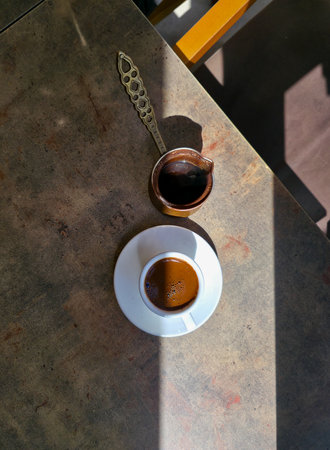1. Introduction to French Press Culture in the UK
The French press, affectionately known as a cafetière in many British homes, has cemented its status as a staple of the UK’s diverse coffee scene. In recent years, this brewing method has experienced a renaissance, particularly among specialty coffee enthusiasts and discerning at-home brewers seeking greater control over their daily cup. Its simplicity, affordability, and ability to highlight the nuanced flavours of single-origin coffees have propelled its popularity from quaint kitchen counters to specialty cafés across London, Manchester, and beyond. The ritual of preparing French press coffee—measuring freshly ground beans, heating water to an exact temperature, and timing the steep—resonates with those who appreciate both tradition and precision. As British coffee culture continues to evolve, more aficionados are recognising that factors like water quality and brewing temperature are critical in unlocking the full potential of their French press brew, elevating what was once considered a utilitarian method into a sophisticated craft.
2. The Role of Water in Coffee Brewing
When brewing French press coffee, water is far more than just a solvent; it is a defining factor in determining the final cup profile. In the UK, where tap water composition varies considerably between regions, understanding water quality becomes essential for achieving consistency and excellence in your brew.
Minerals and Extraction Efficiency
The mineral content of water directly influences extraction by interacting with coffee solubles. Calcium and magnesium ions are particularly effective at extracting flavour compounds from ground coffee, while sodium and bicarbonates can dull or flatten taste if present in excess. Here’s a concise overview:
| Mineral | Effect on Flavour | Ideal Range (mg/L) |
|---|---|---|
| Calcium | Enhances body and sweetness | 40–70 |
| Magnesium | Intensifies brightness and clarity | 10–20 |
| Sodium | Mutes acidity, increases roundness | <10 |
| Bicarbonate | Buffers acidity, can cause flatness if too high | 40–75 |
Filtration Methods and Their Impact
The method by which you filter your water—be it activated carbon jugs, reverse osmosis systems, or simple kettle filters—affects not only clarity but also mineral balance. Over-filtration can strip away essential minerals required for optimal extraction, while insufficient filtration may leave undesirable tastes or odours. Many British households rely on jug filters to manage limescale and chlorine, especially in hard water areas such as London or Manchester.
Regional Variations Across the UK
The UKs diverse geology leads to significant regional variation in tap water hardness and composition. For example, Scottish water is typically soft with low mineral content, requiring supplementation for ideal coffee extraction. Conversely, southern England often experiences very hard water, necessitating filtration or dilution to avoid bitterness or chalky flavours in French press coffee.
A Quick Reference Table: Water Hardness Across Selected UK Cities
| City | Water Type | Main Concern for Coffee Brewing |
|---|---|---|
| London | Very Hard | Limescale, muted flavours; requires filtration/dilution |
| Bristol | Hard | Poor extraction if unfiltered; consider jug filters |
| Edinburgh | Soft | Lacks minerals for full flavour; supplement if possible |
| Birmingham | Moderate/Hard (varies) | Check local reports; adjust with filtered or mixed water accordingly |
| Belfast | Soft/Moderate (varies) | Addition of minerals may be beneficial for body and clarity in cup |
The Takeaway: Why Water Matters in French Press Brewing
If you’re seeking consistently delicious French press coffee at home, pay close attention to your water source and its mineral profile. Adjusting filtration methods or mineral supplementation based on your local supply can elevate both extraction efficiency and sensory experience—ensuring that every cup reflects the nuanced characteristics of your chosen beans.
![]()
3. The Science Behind Water Temperature
Water temperature plays a pivotal role in the extraction process during French press brewing, directly influencing the range and balance of flavours present in your cup. In the UK, most coffee professionals recommend a brewing temperature between 92°C and 96°C. This window is considered optimal for extracting the nuanced flavours and aromatic compounds from coffee grounds without veering into bitterness or under-extraction.
If water is too hot—above 96°C—it risks over-extracting soluble compounds, leading to an overly bitter and sometimes ashy profile, which can mask the inherent sweetness or brightness of speciality beans. Conversely, if your water temperature falls below 90°C, extraction may be incomplete, yielding a flat or sour brew with muted aromas and body. British coffee aficionados often use digital thermometers or allow their kettles to cool for 30 seconds post-boil to achieve this precise range, ensuring consistency cup after cup.
The interplay between temperature and extraction time is also worth noting. A slightly lower temperature might be balanced by a marginally longer steep, whereas hotter water typically requires a shorter brew time to prevent over-extraction. In essence, mastering water temperature is crucial for coaxing out the vibrant notes—be it floral Kenyan beans or chocolatey Colombian roasts—that make French press coffee so rewarding for discerning UK palates.
4. Practical Guide: Selecting Water for French Press
When brewing French press coffee in the UK, the choice of water source and its characteristics can significantly influence the final cup. Below, we break down practical considerations for selecting and managing your water to achieve consistent and high-quality results.
Water Sources: Tap, Filtered, or Bottled?
The UKs water quality varies by region—some areas have hard water rich in minerals like calcium and magnesium, while others have softer profiles. Here’s a comparative guide to help you choose:
| Water Source | Pros | Cons | Best Use Case |
|---|---|---|---|
| Tap Water | Convenient, inexpensive | Variable mineral content, possible chlorine taste | If local water is soft and tastes neutral; test before use |
| Filtered Water (e.g., Brita, charcoal filters) | Reduces chlorine, balances hardness, improves flavour clarity | Filter maintenance required; may reduce beneficial minerals if over-filtered | Ideal for most UK households seeking consistency |
| Bottled Water (spring/mineral) | Predictable mineral content, low contaminants | Costly, environmental impact, not all brands suitable for coffee | Special occasions or if tap/filtered water yields poor results |
Key Water Parameters to Control
The Specialty Coffee Association recommends these targets for optimal extraction:
- Total Dissolved Solids (TDS): 75–250 mg/L—ideally around 150 mg/L for balanced extraction.
- Total Hardness: 50–175 ppm as CaCO3.
- Alkalinity: 40–70 ppm as CaCO3.
- No detectable chlorine or strong odours.
Simple Tips for UK Coffee Drinkers:
- If your tap water tastes good plain, it’s likely fine for coffee. If you notice a chemical taste or excessive scaling in your kettle, opt for filtered water.
- Bottled water should have moderate mineral content; avoid those labelled ‘distilled’ or ‘purified’, which can result in flat-tasting brews.
- A basic home TDS meter can help you monitor water quality over time—especially useful in regions with seasonal variation.
- If unsure about your local water, start with a reputable filter jug and adjust from there based on taste.
Coffee Quality Starts with Water Awareness
The subtle interplay between the minerals in your brewing water and the compounds in your coffee grounds determines body, sweetness, acidity, and aroma. By choosing the right source and controlling key parameters at home, UK coffee enthusiasts can unlock a more vibrant French press experience tailored to local conditions.
5. Perfecting Temperature Control at Home
Achieving the ideal water temperature is essential for extracting the full flavour potential of French press coffee, especially with the nuanced and varied water profiles found across the UK. For British home brewers, maintaining water between 92°C and 96°C strikes the right balance, unlocking complex aromatics without drawing out undesirable bitterness or astringency. Here’s how you can master temperature control in your kitchen:
Use an Accurate Kettle
Invest in a variable-temperature electric kettle, which allows you to set and hold precise temperatures. If using a standard kettle, bring it just to the boil, then let it stand off the heat for about 30 seconds before pouring—this typically brings it into the optimal range.
Thermometer for Peace of Mind
A digital thermometer offers reassurance if you’re striving for precision. Check the temperature just before pouring over your grounds; it should read between 92°C and 96°C.
Preheat Your French Press
Pour hot water into your French press and swirl it around to warm the glass or stainless steel. This step minimises heat loss when you begin brewing, ensuring that your water stays within the target range throughout extraction.
Consider Local Water Temperatures
Taps in different regions may deliver water at varying baseline temperatures due to seasonal changes or plumbing insulation. Always start with freshly drawn cold water for boiling—this ensures better oxygen retention and a cleaner flavour profile.
Brew Timing and Consistency
Once combined with coffee grounds, replace the plunger lid immediately to retain heat. Aim to keep your steeping environment draft-free; avoid placing your press near windows or fans, as even small drafts can cool your brew prematurely. Consistent timing—typically four minutes—combined with stable temperature will lead to reliably excellent cups every morning.
By applying these practical techniques, British home brewers can confidently control their brew temperature, allowing both regional water qualities and fresh coffee beans to shine in every cup prepared with a French press.
6. Conclusion: Elevating French Press Coffee in the UK
Paying close attention to water quality and temperature is a simple yet profound way to transform the French press experience for coffee lovers across the UK. As we’ve explored, the mineral content and purity of your water can dramatically affect both extraction and flavour clarity, while nailing the ideal brewing temperature unlocks the nuanced characteristics of your chosen beans. When British coffee enthusiasts start to treat water not just as an ingredient, but as a key variable in their daily brew, they’ll find their morning cup elevated from ordinary to exceptional. Adopting a more mindful approach—testing your tap water, considering filtration solutions, and using a thermometer for precision—encourages a culture of experimentation and appreciation within the UK’s vibrant coffee scene. Ultimately, by embracing these technical insights into water quality and temperature, every home brewer has the opportunity to enjoy café-quality French press coffee at home, fostering a deeper connection with each cup and raising the standard of everyday coffee enjoyment nationwide.


